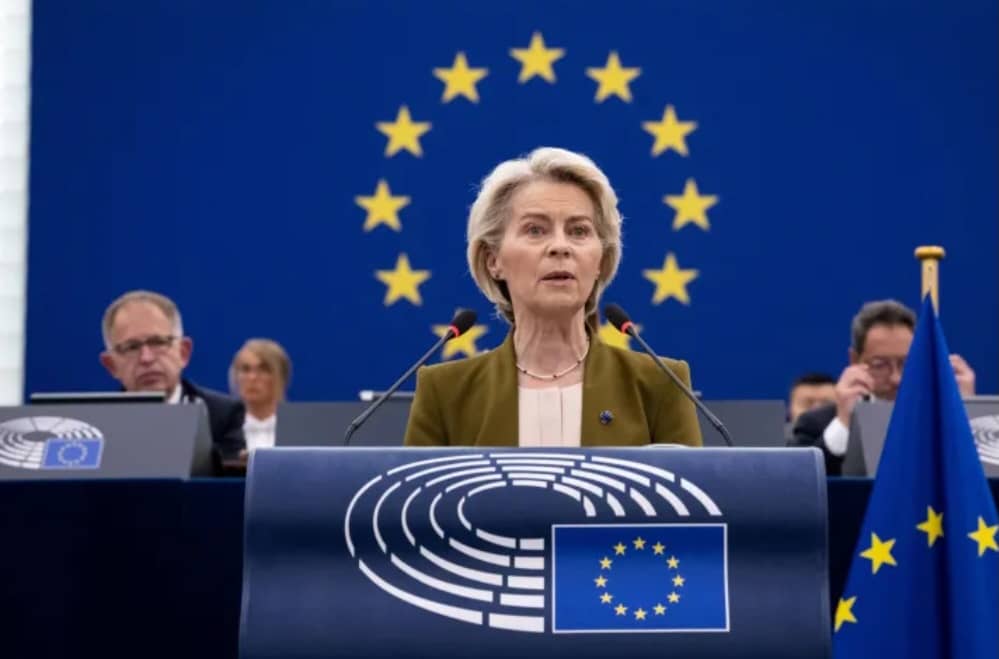
Esther Imonmion
European Commission President Ursula von der Leyen on Wednesday pledged new measures against Israel and renewed support for Ukraine in her annual State of the Union address to the European Parliament.
Von der Leyen condemned the humanitarian crisis in Gaza as “catastrophic,” announcing plans to cut EU support for Israel and introduce sanctions. Proposed measures include targeting “extremist Israeli ministers” and settlers, suspending bilateral cooperation, and freezing the EU’s association agreement that grants Israel preferential access to European markets.
“Man-made famine can never be a weapon of war. For the sake of the children, for the sake of humanity, this must stop,” she said, urging EU members to take responsibility despite divisions within the bloc.
Israel swiftly rejected the proposals. Foreign Minister Gideon Saar accused von der Leyen of echoing “false propaganda of Hamas,” saying her remarks “send the wrong message, which strengthens Hamas and the radical axis in the Middle East.”
On Ukraine, von der Leyen called for a summit to coordinate efforts to secure the return of children abducted by Russia. She also backed the use of frozen Russian assets to finance a “reparations loan” for Kyiv but ruled out direct seizure of those funds.
Her remarks came shortly after Polish and NATO forces intercepted Russian drones that had violated Polish airspace. Branding Moscow’s actions “reckless and unprecedented,” she confirmed the EU is preparing a 19th round of sanctions aimed at phasing out Russian fossil fuels, sanctioning shadow oil fleets, and penalising third countries helping Russia circumvent restrictions.
Since Russia’s 2022 invasion, the EU has imposed 18 sanctions and provided nearly €140 billion ($164bn) in financial, humanitarian, and military aid to Ukraine.
Von der Leyen acknowledged political obstacles ahead. Sanctions require unanimous approval from all 27 member states, some of which — including Hungary and Slovakia — remain reliant on Russian energy. The bloc is also deeply divided over Israel, with states such as Spain and Ireland calling for an arms embargo, while others, including Germany and the Czech Republic, continue supplying weapons to the Israeli military.
Spanish Prime Minister Pedro Sanchez has criticised Western “double standards” on Ukraine and Gaza, warning they risk undermining Europe’s global credibility.
Von der Leyen also defended her recent trade deal with Washington, saying it stabilised transatlantic ties and prevented a damaging tariff war. In addition, she called for a new EU sanctions regime against human traffickers, arguing it would strengthen the bloc’s ability to manage migration “effectively.”
